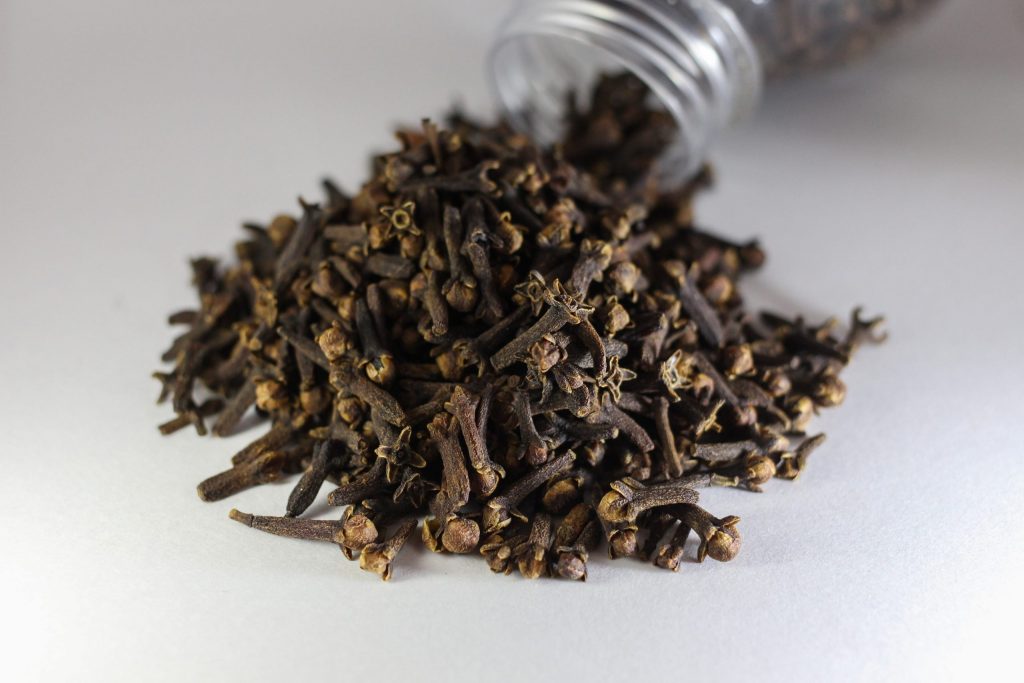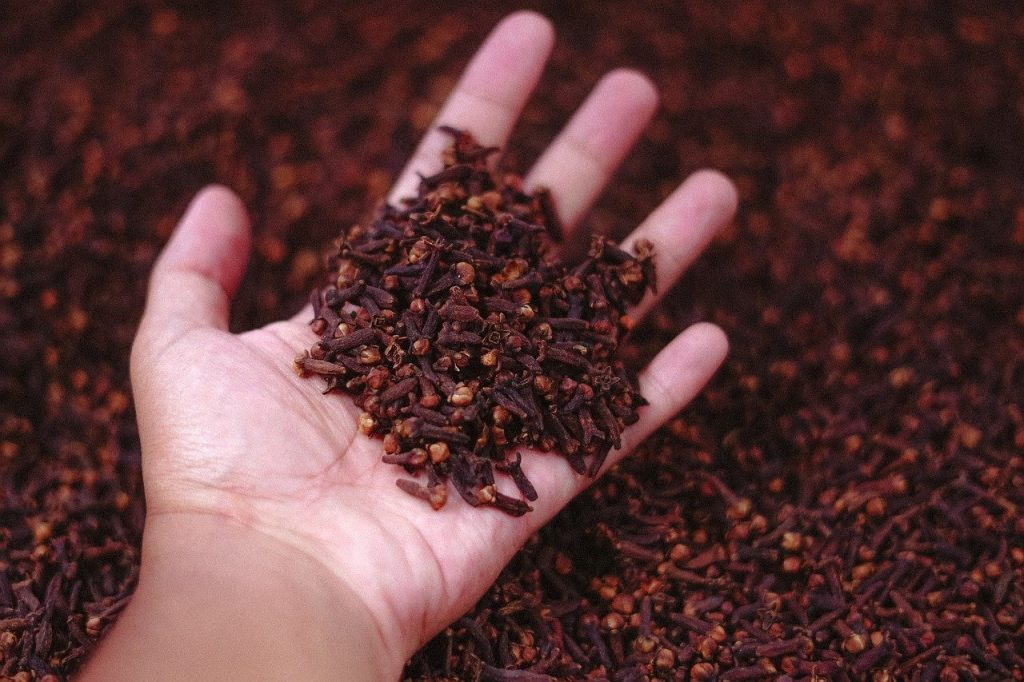
Introduction:
Toothaches can be excruciating, and while there are many remedies available, one age-old solution stands out: cloves. In this post, we’ll delve into the efficacy of cloves, particularly clove oil, in alleviating tooth pain and how to use it safely.
1. The Power of Cloves:
Natural Anesthetic:
Cloves contain a compound called eugenol, which has natural anesthetic properties. This makes it effective in numbing pain and reducing inflammation.
Antibacterial Properties:
Apart from pain relief, cloves also have antibacterial properties that can help fight infections causing the toothache.
2. How to Use Cloves for Toothache:
Direct Application:
For a quick remedy, you can place a whole clove near the affected area in your mouth. As it gets moistened by saliva, it releases its essential oils, providing relief.
Clove Powder:
Clove powder can be applied directly to the affected tooth. However, it’s essential to ensure that the powder is pure and free from additives.
Clove Oil:
Clove oil is a concentrated form and is the most effective. To use:
- Dip a cotton ball in clove oil.
- Place it on the affected tooth or gum area.
- Leave it for a few minutes and then remove.
- Avoid swallowing the oil.
3. Precautions and Considerations:
Avoid Overuse:
While clove oil is effective, it’s potent. Overuse can lead to burns in the mouth or increased pain.
Allergies:
Some people might be allergic to cloves. It’s essential to do a patch test before using it extensively.
Consultation:
While cloves can provide temporary relief, it’s crucial to consult a dentist for persistent pain or underlying dental issues.
4. Other Benefits of Cloves:
Apart from dental health, cloves have various other health benefits, including aiding digestion, boosting the immune system, and acting as an antioxidant.
Conclusion:
Cloves, especially in the form of clove oil, can be a lifesaver when it comes to toothaches. However, it’s essential to use them wisely and consult a professional for persistent issues.
Frequently Asked Questions (FAQs) about Cloves for Toothache:
- What makes cloves effective for toothache relief?
Cloves contain a compound called eugenol, which acts as a natural anesthetic. This helps numb the pain and reduce inflammation. Additionally, cloves have antibacterial properties that can help combat infections causing the toothache. - How do I use clove powder for toothache?
You can apply pure clove powder directly to the affected tooth or gum area. Ensure the powder is free from additives. The fine consistency of the powder ensures better contact with the painful area, providing relief. - Is clove oil the best remedy for toothaches?
Clove oil is one of the most concentrated and effective forms of clove for toothache relief. However, it’s essential to use it sparingly and correctly. Always apply it using a clean cotton ball or swab and avoid swallowing the oil. - Can I use whole cloves for tooth pain?
Yes, placing a whole clove near the painful area in your mouth can provide relief. As the clove gets moistened by saliva, it releases its essential oils, which help alleviate the pain. - Are there any side effects to using cloves for dental pain?
While cloves are generally safe, some individuals might find clove oil too potent, leading to a burning sensation. It’s also possible for some people to be allergic to cloves. Always conduct a patch test before extensive use and consult a healthcare provider if unsure. - How often can I apply clove oil to a painful tooth?
While clove oil provides immediate relief, it’s best to use it sparingly and not more than 2-3 times a day. For persistent pain, it’s crucial to consult a dentist. - Do cloves help with gum pain as well?
Yes, the anti-inflammatory properties of cloves can also help alleviate gum pain. - Is it safe to use cloves for children’s toothaches?
While clove oil can be used for kids, it’s essential to use it in minimal amounts and under adult supervision. Always consult a pediatric dentist before using any remedies on children. - Can I use cloves as a long-term remedy for dental issues?
While cloves can offer temporary relief, they should not be used as a long-term solution. Persistent dental pain or issues should be addressed by a professional dentist. - Do cloves have benefits beyond dental health?
Absolutely! Cloves aid in digestion, act as antioxidants and have anti-inflammatory properties beneficial for conditions like arthritis.
Blog Tags:
Cloves, Toothache, Natural Remedies, Dental Health, Clove Oil, Eugenol, Pain Relief, Antibacterial, Clove Powder, Dental Care.















